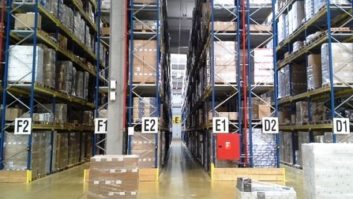NEW YORK – The white-goods industry is split on whether the Justice Department (DOJ) did good by throwing a monkey wrench into GE’s and Electrolux’s $3.3 billion wedding plans.
One majap industry veteran, who spoke on condition of anonymity, said the appliance business is better off with more players than less, and suggested that the current activist DOJ – which derailed separate Sprint deals with AT&T and TMobile – may have learned a lesson from Whirlpool’s 2006 buyout of Maytag and its coterie of sister brands.
“Whirlpool is demanding things from dealers that it couldn’t have before,” he observed.
But David Stevenson, president/CEO of market research firm The Stevenson Company, which testified before DOJ during its Whirlpool-Maytag deliberations, disagrees. “Given the movement toward globalization in this industry, the merger seemed like a positive for all parties involved,” he noted. “We are hopeful that an agreement can be reached that will allow the acquisition to go forward.”
The deal, announced last September, would give Electrolux market-share parity with Whirlpool, access to GE’s renowned engineering corps, and a major stake in the homebuilders’ channel, where GE has traditionally dominated.
Indeed, in announcing the DOJ’s antitrust lawsuit, Assistant Attorney General Leslie Overton specifically cited fears of a commercial appliance duopoly, and concern over GE’s and Electrolux’s strength in the cooking category.
The merger, she said, “would leave millions of Americans vulnerable to price increases for ranges, cooktops and wall ovens.”
Poppycock, said Christine Boersing, a home appliance industry analyst with Gap Intelligence. “The home appliance market is price sensitive and extremely competitive. The industry was once dominated by the Big Three but is largely, and quickly, changing. The increased pressure from Asian manufacturers” – specifically LG, Samsung and more recently Haier – “pushes all players in the industry to produce cost-effective products at competitive prices.”
Keith McLoughlin, president/CEO of Electrolux concurred. “I think it was difficult for [DOJ] to get the nuances of how the business actually works in general, and then also the competitiveness of this industry,” he said on a conference last week. “I don’t think they got that at all.”
Rather than squelch competition, McLoughlin argued, a combined GE and Electrolux would accelerate innovation, “which improves the industry as a whole and results in more consumer choice than ever.”
The alternative, suggested analyst Boersing, would be a stagnant GE dying on the vine, as its conglomerate parent “wants out of the appliance business entirely.”
Industry observers suggest that Electrolux may be able to placate regulators by shedding brands like GE’s Hotpoint, and/or manufacturing capacity and other assets. But McLoughlin, who is also busy fending off reports from Sweden of his pending retirement, dismissed that option.
“I don’t see a scenario where, for either party, it would make much sense to split the baby,” he said.
So where does the marriage stand? Electrolux expressed its willingness to continue its discussions with DOJ, and most, including the betrothed, expect the deal to ultimately close later this year.
In the meantime, said the appliance industry veteran, “This will be a distraction, for Electrolux, for GE, for Whirlpool and for the industry.”












